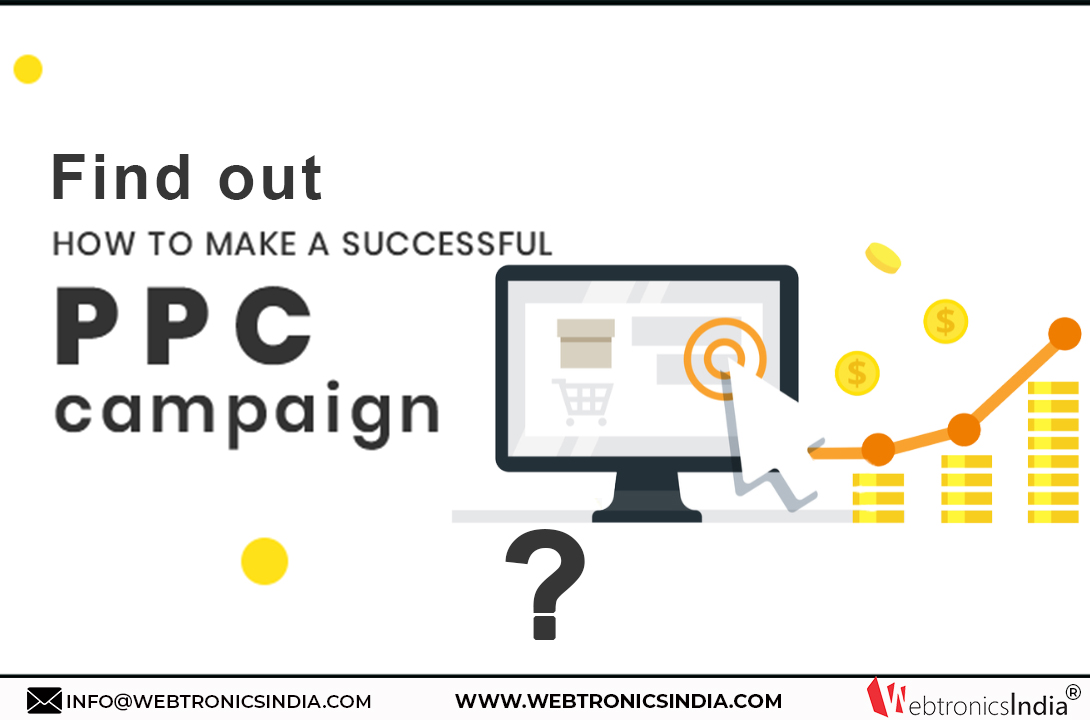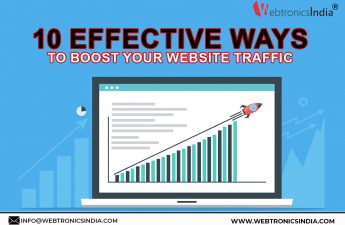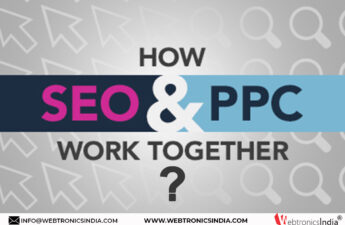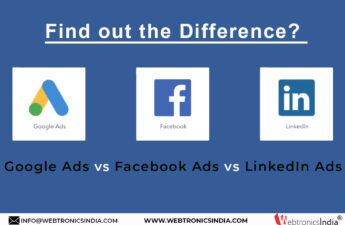PPC or Pay Per Click is a model of internet marketing used by PPC experts or businesses in which the advertisers are supposed to pay a fee each time their ad is clicked on search engines. This model is opposite to search engine optimization (SEO) where you earn visits organically. Unlike SEO which requires continuous efforts and patience, PPC brings immediate results.
A business or a PPC agency can achieve several goals with PPC like brand visibility, increase in traffic, new leads, conversions, etc. But to achieve these goals, you must know how to make a successful PPC campaign.
Following are the steps that will help you run a successful PPC campaign:
-
Optimize your Landing Page(s)
Before you work on a PPC Campaign or hire PPC Experts, you must ensure that your landing page is in sync with your ad. If a potential customer clicks on a PPC ad, it is because the content of your ad intrigued him, and he wants to learn more. But if your landing page isn’t optimized for ads, the user will be disappointed and will leave the page resulting in a high bounce rate.
A prospect usually clicks on an ad to find out more about the ad content. That is why the best PPC services believe that website owners should create or customize the landing pages with respect to the contents of the ad. For example, if you are running a PPC ad offering healthy snacks, then the landing page for the ad should contain all the details about the snacks, a coupon to get the discount on the first purchase, or something that triggers an action by the user.
Another essential factor recommended by PPC experts is to optimize your landing page for performance. This is important because if a page loads slowly, is difficult to navigate, or has technical issues, it will result in poor user experience and a high bounce rate. You can optimize your website by following ways:
- Use clear and compelling CTA (call to action).
- Select a simple design with enough white space.
- Write a clear and concise copy.
- Place images and videos strategically to get maximum user attention.
- Use bullet points, visuals, and stand-out quotations.
-
Choose the Right Bidding Strategy
There are different bidding strategies for running a PPC campaign as a business owner or a PPC agency. You must pick the right one depending on factors like your budget, experience, and goals. The next step is to choose between a manual bidding strategy or automated bidding. If you are a beginner in the PPC domain and don’t wish to hire PPC experts, you can start with manual bidding. This will help you especially if you are working on a low budget as the manual bidding method allows you to put a cap on your CPC or cost per click.
The trade-off with manual bidding is that you cannot optimize your bids. On the other hand, automated bidding requires less amount of time but you will have to pay a little more. There are a lot of bidding strategies in automated bidding methods that are recommended by Google, and you can pick anyone that fits your goals like traffic, visibility, or conversions.
-
Choose your Keywords Wisely
Keyword research is an important aspect of a PPC campaign and forms the backbone of the entire process. Following are the tips for selecting the right keywords:
- Analyze the keywords used by your competition.
- Put yourself in your customers’ shoes and find out what keywords you would use while looking for your products and services.
- Make use of Google Keyword Search or similar tools to identify keyword opportunities.
- Pick specific keywords for your campaign rather than vague or generic keywords.
- Opt for local keywords when possible.
Picking the right keywords will give you the maximum hits on your PPC campaign. Not only this, you will also be rewarded with a high-quality score and a lower cost per click. Negative keywords form another essential element of a successful PPC campaign as they filter out unnecessary campaigns.
-
Write a Killer Ad
Once your landing page is ready, the budget is set, the bidding strategy is finalized, and you have chosen the right keywords, it’s time to write a killer ad. Give genuine information about your product or service and guide your prospect towards your ad goal (traffic, conversions, etc.) Do not beat behind the bush and write a short and precise ad copy.
One of the best ways to sell your ad copy is to offer a unique selling proposition that is different from other ads and offers value to your customers. Focus on the pain points of your prospects and offer a solution in your PPC ad. If you are a PPC agency, writing a winning ad copy must be your prime focus.
-
Use Call to Action
Your ad copy is incomplete without a proper call to action. An ad without a CTA is just generic content with no specific path for the customer to follow. Ensure that your CTA is short and simple but compelling and clear at the same time. Some of the best examples used by PPC experts are ‘buy now, ‘book now’, etc.
-
Test your Ads for Performance
So you have followed all the steps provided above and your ad is up and running. But the story doesn’t end here. The next important step is to track your ads, measure their performance, and make the necessary changes to improve results. You can use the A/B testing method which allows you to run two similar versions of your ad at the same time, with one difference. This method is being used by all successful businesses and PPC experts.
With A/B testing, you can modify any of the elements including keyword, CTA, ad copy, or even the landing page. Once you identify which ad version is performing better, you can do the required changes and stop running the low-performance ad.
Summing Up
PPC campaigns can be an asset for your business or PPC services if you use the right strategies and create an ad copy that promises the best ROI for your efforts. Are you still wondering how to make a successful PPC campaign? Follow all the steps provided above, and you notice an improvement in your conversion rates. Remember the best ad copy is one that understands the needs of our customers and offers the right solution or product/service.




